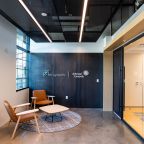Background
Founded in 1891 in Philadelphia, Drexel is a comprehensive global research university ranked among the top 100 in the nation. As one of Philadelphia’s top 10 private employers, Drexel is a major engine for economic development in the region. Long committed to being the nation’s most civically engaged university, Drexel has integrated community partnerships into every aspect of service and academics. Drexel’s ongoing strategic plan, “Transforming the Modern Urban University,” guides the University’s 21st-century trajectory.
Challenges
Adopting a Responsibility Center Management (RCM) Model
Across the higher education industry, redesign of historical, incremental budget models has been a popular undertaking in recent years. Numerous institutions have reimagined their approach to budgeting, with many shifting to more strategic and data-driven means of resource allocation.
Managing Churn in the Urban University
Like many urban universities, Drexel grew within, around, and beside the city itself. As time passed, the city and the University evolved and expanded, bringing to the forefront the challenges of urban decentralization; maintaining an efficient use of space, staying ahead of strategic planning, encouraging student and faculty engagement and ensuring community communication and collaboration.
Solution
Prior to using FM:Systems Integrated Workplace Management System (IWMS), FM:Interact, the University had abandoned an obsolete Space Management solution and were largely using Excel sheets to “guesstimate” space utilization. When Drexel started the process of searching for a Space Management system, they had a strong vision for what it needed to do. Dan Yohey, Space Management Director, began with a minimum set of requirements. The new system must:
- Be shared with the entire organization
- Accurately track space
- Be implemented within a tight timeframe of going live with RCM
- Provide real-time accurate data
After investigated 6 different Space Management software providers, they chose FM:Systems because it met, and exceeded, these baseline requirements:
- FM:Systems provided more out-of-the box functionality than its competitors
- FM:Systems had a vested interest in our success, because it offered direct contact during implementation and maintenance, with no third-party managing the process
- The Software as a Service (SaaS) model meant FM:Systems had a lower cost of implementation and ongoing maintenance
- The system allows for unlimited “general users” which was critical to the RCM mandate for transparency
- The user interface was easier to navigate for University stakeholders than other products investigated
- The most compelling reason for choosing FM:Systems? Their people.










